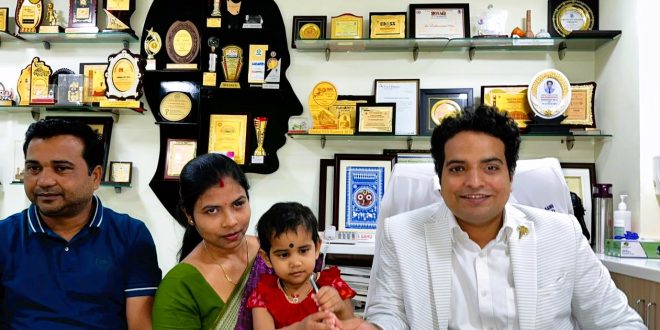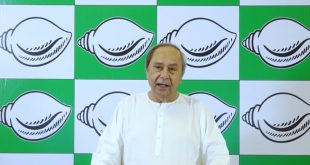Bhubaneswar: Adopting a minimally invasive procedure, a cochlear implant was successfully placed on a two-year-old deaf child at the SUM Ultimate Medicare (SUMUM) here recently enabling her to hear.
The two-year-old girl was brought to the hospital with a problem in the inner ear which had rendered her deaf.
The baby couldn’t speak because she was unable to hear anything and learn the sounds and words. Devastated upon learning about the baby’s condition, the parents hailing from Sambalpur, sought treatment at several places before bringing her to SUMUM. She was admitted under the care of Dr. Radhamadhab Sahu, Senior Consultant and Head of ENT and Skull Base Surgery at the hospital.
Following the case evaluation, a decision was taken for the girl to undergo a cochlear implant. “We opted for a minimally invasive procedure requiring a small incision to place the device. This approach guarantees less pain and felicitates speedy recovery of the patient,” Dr. Sahu said.
The implant was switched on after 21 days and the girl was subjected to post implant speech therapy for three months.
Dr. Sahu said the surgery was a challenge for such a young child as the skull bone thickness and pneumatisation was not proper.
The baby was subjected to speech therapy and Auditory Verbal Therapy (AVT) by Audiologist Ms. Lopamudra Tripathy under Dr. Sahu’s guidance.
Dr. Sahu said the baby was now able to hear and respond to sounds, adding “she will learn to speak gradually.”
He explained that in such cases the younger the child, the better the outcome as exposure to diverse words and sounds accelerates the brain development.
SUMUM, in an ongoing commitment to community awareness, has set up a specialized Out Patient Department exclusively to deal with cases requiring cochlear implants. This dedicated facility, which is open on Mondays and Fridays, serves as a pivotal source for individuals seeking information, consultation and potential interventions related to cochlear issues. It not only addresses immediate healthcare needs but also underscores proactive outreach and support for those grappling with hearing impairments.
 Update Odisha-Odisha News I Latest News Get latest news on Odisha, Govt. Jobs, OSSC, OPSC, Entertainment, Crime, Sports, and Education
Update Odisha-Odisha News I Latest News Get latest news on Odisha, Govt. Jobs, OSSC, OPSC, Entertainment, Crime, Sports, and Education



